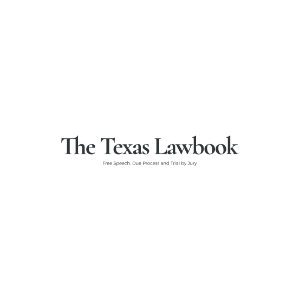If you or one of your loved ones suffered an injury in Dallas, TX through no fault of your own, you have a right to pursue justice and accountability by filing a claim or lawsuit. You may be entitled to compensation for your medical bills, the wages you lost, the pain and suffering you have endured, and other hardships and losses caused by your accident. If you believe that you, your spouse, or a family member was the victim of negligence, know you can turn to the skilled and experienced Dallas personal injury attorneys of Queenan Law for nuanced guidance, compassionate support, and aggressive legal representation.
Queenan Law represents personal injury victims across the city of Dallas and elsewhere in Texas. Our practice operates under the firm belief that a society thrives when justice prevails. Every member of our law firm is devoted to his or her role in advancing fairness and advocacy for injury victims, and will closely scrutinize every detail of your accident to build the most compelling case possible. We approach every case with one goal in our minds: to obtain the compensation our clients deserve.
Even if you are unsure whether you have a case or need a Dallas personal injury attorney, we encourage you to contact our law offices for a free, friendly, and completely confidential consultation regarding your legal matter.
Types of Injuries Our Dallas Lawyers Represent
Personal injury law is a broad legal field which encompasses many different areas of focus. With more than two decades of experience handling a wide variety of claims and lawsuits in the North Texas region, our knowledgeable Dallas personal injury lawyers bring a diverse range of legal talents to all types of Dallas personal injury matters, including but not limited to the following:
- Bad Faith Insurance – Good faith means an insurance company has conducted its operations with transparency and honesty while making timely, reasonable efforts to resolve the matter at hand. Unfortunately, it is not uncommon for insurance companies to do just the opposite, engaging in unethical, unlawful “bad faith” practices which are detrimental to claimants. Warning signs that an insurance company is acting in bad faith include avoiding phone calls, delaying claim determinations, and ignoring evidence.
- Car Accidents – Car accidents and other automotive accidents are an extremely common source of personal injury claims in North Texas, with the Texas Department of Transportation reporting that over 17,150 people were injured in crashes in 2014 alone – a number which equates to about 47 new injury victims per day. Common types of vehicular accidents we handle include:
- Head-On Collisions
- Highway Accidents
- Intersection Accidents
- Lane Change Accidents
- Multi-Vehicle Pileups
- Parking Lot Accidents
- Rear-End Collisions
- Rural Road Accidents
- Construction Accidents – According to the Occupational Safety and Health Administration, or OSHA, most construction accidents involve one of the following “Big Four” hazards: electrocution, accidental falls, being caught in between objects, or being struck by falling or swinging objects. With personal experience as a former construction company owner and crane operator, practice founder Kevin Queenan has unique insight into how and why crane accidents and construction site injuries occur – and should have been prevented.
- Maritime Claims – Ships can create very hazardous environments for crew members, longshoremen, and other personnel. However, like workers in any industry, maritime workers are entitled to exercise their legal rights when they sustain serious injuries due to negligence. Our attorneys help seamen and their loved ones fight for fair accident compensation.
- Product Liability – Product liability is the area of personal injury law dealing with manufacturer liability for deaths and injuries caused by malfunctioning, mislabeled, or defective products. Our attorneys have extensive experience litigating product liability cases involving a wide range of industrial and consumer goods, including vehicles, toys, appliances, food and beverage, manufacturing machinery, prescription medications, medical implants, and safety gear like helmets and seatbelts.
- Spinal Cord Injuries (SCI) – The spinal cord is a long bundle of nerve fibers which creates a bridge of communication between the body and brain. When the spinal cord is injured, this capability is diminished, which can lead to devastating medical consequences including paralysis (paraplegia, quadriplegia/tetraplegia), chronic pain, poor coordination, muscle weakness, incontinence, and loss of physical sensation.
- Traumatic Brain Injuries (TBI) – Traumatic brain injuries (TBI) are among the most debilitating injuries any person can ever have to suffer through. The effects of TBI can include memory problems, chronic headaches, impaired cognitive function, depression, insomnia, and increased risk of developing serious medical conditions like Alzheimer’s disease and seizures. According to the Centers for Disease Control and Prevention (CDC), leading causes of TBI include car accidents, object strikes, and accidental falls.
- Truck Accidents – Due to the tremendous size and weight disparity between passenger vehicles and commercial big-rigs, truck accidents often result in catastrophic injuries or wrongful death. In the profit-oriented rush to complete their journeys as quickly as possible, professional truckers sometimes deliberately drive well past their shift limits, becoming dangerously fatigued or even falling asleep at the wheel.
- Workplace Injuries – Serious injuries occur in all industries, but people who work in certain occupations are more vulnerable than others. Some of the most dangerous U.S. industries include manufacturing, logging, agriculture, construction, mining, forestry, transportation, and warehousing.
- Wrongful Death – Tex. Civ. Prac. & Rem. Code Ann. § 71.002 defines wrongful death as any death resulting from the “wrongful act, neglect, carelessness, [or] unskillfulness” of an individual or business, or a preventable death which was caused by negligence. State laws permit the children, parents, and spouses of Texas wrongful death victims to file a lawsuit on the decedent’s behalf.
Below are just a few examples of the many cases we have handled:
- A worker made contact with high voltage electric line, resulting in severe burns.
- An intoxicated 18-wheeler driver caused severe broken facial bones to client.
- Defective crane boom welds resulted in a worker sustaining a brain injury.
- Severe, life-threatening injuries occurred when a gastric bypass stapler malfunctioned.
Liability and Compensation for an Injury in Dallas, TX
It’s never easy to adjust to the changes a serious injury brings to your life, particularly when that injury was the avoidable, needless result of another person’s thoughtless actions (or in some cases, failures to act). Depending on the nature and severity of the injury, the victim may face a lifetime of chronic pain, become burdened with extensive medical debt, lose their marital relationship, require in-home medical care and assistance, or be forced to give up the career and leisure activities they once loved.
Clients often contact our Dallas personal injury attorneys in a state of despair due to the unfortunate circumstances of their injury, further discouraged by the bleak outlook insurance companies, adjusters, and even other attorneys gave them on their case. Queenan Law attorneys step up to face those challenges and level the playing field with our experience, persistence, and aptitude. We take a precise, proactive, and detail-oriented approach to every matter we handle, attacking each case with a tactical combination of:
- Strategic legal planning.
- Complete and thorough investigations.
- Innovative technological presentations.
- Access to external experts.
Do not be intimidated to assert your legal rights against a larger adversary, even a seemingly insurmountable corporation. No person or business, no matter how powerful, has the right to evade responsibility for the suffering they have carelessly inflicted upon others. No matter who may have caused your accident, you deserve compensation for the injuries and damages you have suffered, and as our client, you can feel confident that our attorneys will fight using all means at our disposal in an effort to make a recovery for you.
More specifically, we will work to demonstrate four key points in order to prove fault and obtain compensation:
- The defendant owed you a duty of care. The “duty of care” is the duty to take reasonable measures to minimize the risk of foreseeable death or injury. For instance, landlords have a duty of care to their tenants, while drivers have a duty of care to pedestrians, cyclists, and other drivers.
- The defendant breached that duty of care. “Breach of duty” can look very different from one case to the next, depending on the nature of the accident. For example, in a case involving a car accident, a breach of duty might be the other driver’s intoxication, speeding, or failure to pay attention to traffic lights. In a case involving product liability, a breach of duty might involve failure to label or test a product adequately. Put simply, breach of duty means the defendant either did something they shouldn’t have, or failed to do something they should have.
- The defendant’s actions, or lack thereof, caused your accident. This element, which is called “causation,” has two components: “actual” or direct cause, and “proximate” or indirect/legal cause. For example, the actual cause of a head-on collision would be one driver crashing into the other, while the proximate or underlying cause might involve inattention or other factors. But for the driver’s inattention to the road, the accident would not have occurred.
- The accident caused you to suffer actual harm. This element is called “damages.” Damages can be financial, physical, and/or psychological in nature – for example, a medical bill resulting from a surgery, or the pain and suffering caused by losing a limb.
How Long Does a Person Have To File a Personal Injury Claim in Dallas?
A statute of limitation is a type of law that prevents someone from starting a lawsuit after a certain period of time has passed. Statutes of limitation are imposed in order to further the public interest. To quote the U.S. Supreme Court, “Statutes of limitation…in their conclusive effects are designed to promote justice by preventing surprises through the revival of claims that have been allowed to slumber until evidence has been lost, memories have faded, and witnesses have disappeared.”
The statute of limitations for negligence actions is generally two years. However, the cause of action accrues when a wrongful act causes an injury. This means that when there is an action for negligence that involves wrongful conduct that was inflicted over a period of time, there may be an exception to the standard two-year time limit.
What Types Of Damages Can a Person Recover?
The type of damages that are typically available in Texas personal injury causes of action include actual damages (general and special), nominal damages, exemplary or punitive damages, interests, and court costs.
- Actual damages– actual damages, are also known as compensatory damages and are awarded to repair a wrong or to compensate for an injury. Actual damages can be either direct or special which also are known as general and consequential damages respectively. General damages are damages that are the necessary and usual result of the defendant’s wrongful act. These types of damages compensate the plaintiff for the loss or injury that is conclusively presumed to have been foreseen by the defendant as a consequence of the wrongful act.
- Nominal damages – Nominal damages are different from actual damages. Generally, nominal damages can be awarded in cases where a legal right has been invaded but the plaintiff was not able to prove actual damages.
- Exemplary damages – exemplary damages are also known as punitive damages. These types of damages are meant to penalize a defendant for outrageous or malicious conduct and to deter such conduct in the future. These damages are different from compensatory damages in that they are not meant to compensate a person, but rather to punish them through imposing a penalty.
Some states throughout the country place a limit on the type and amount of damage that an injured person can receive from a personal injury suit. In Texas, the legislature has only placed a limit on damages for medical malpractice cases. These cases plaintiffs are limited to non-economic damages, which are commonly those meant to compensate for pain and suffering and a maximum of $250,000 per defendant, and $500,000 overall.
Are There Any Defenses to Personal Injury Actions?
There are many defenses to a personal injury action in Texas which may reduce or preclude liability altogether. Some of the affirmative defenses that a defendant may employ include:
- Assumption of the risk – this defense can be used when the plaintiff has expressly and knowingly agreed either verbally or in writing to a dangerous activity or condition.
- Contributory negligence – contributory negligence is a legal policy that concerns the plaintiff’s actions that may have contributed to his injuries in addition to the defendant’s actions. Texas employs a system called proportionate responsibility and contribution. This is a way for a court to determine which parties are responsible for the injury to the plaintiff, and how much responsibility each party has for the plaintiff’s injuries.
- Release – a release is an agreement where one person agrees that the other person will not be held responsible for a negative outcome that may result from an action. The release must be written in clear terms and be noticeably visible in the contract.
- Waiver – a defendant may claim that the plaintiff has waived their right to file a case.
Contact Our Experienced Dallas Personal Injury Lawyers
We understand that this is a lot of information to take in, and that you probably have many questions about your legal rights and responsibilities as an accident victim in Texas. Queenan Law encourages all accident and injury victims to contact us about their cases, including during evenings and weekends. Kevin will determine whether he can help, and if not, he will personally refer you to a reputable colleague whom he believes is better suited for your case. For a completely confidential, free legal consultation with a Dallas personal injury lawyer, call Queenan Law today at (817) 476-1797.






